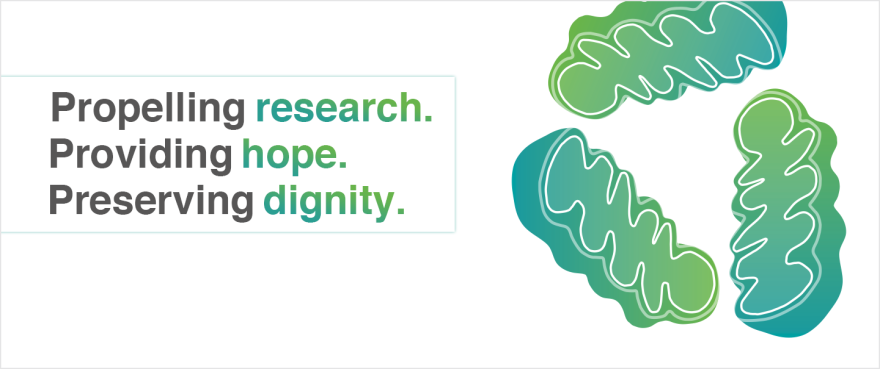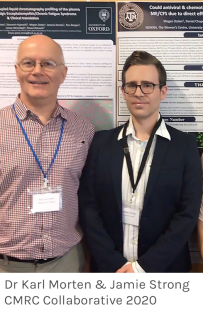Myalgic Encephalomyeltis/Chronic Fatigue Syndrome
A Message from Dr Karl Morten
With a primary background focused on the investigation of "classical" mitochondrial respiratory chain diseases, predominantly of genetic heritability, how did Dr. Morten become involved in ME/CFS research?
One question I am commonly asked by patients is how did we get interested in ME/CFS? My long-standing research interest for the last 30 years has been on the role of mitochondria “The power house of the cell” in health and disease.
The initial spark to get involved in ME/CFS research came from Professor Norman Booth who gently persuaded me over several years that this was an interesting and important area to work in. Norman in his work with Dr Sarah Myhill and Dr John Maclaren-Howard (Acumen) had found an interesting link between energetic failure and MECFS in the white blood cells of patients.
We then received our first small grant from the ME Association (MEA) to look into the Acumen mitochondrial test and have spent the last few years building up our research in this illness with further grants from the MEA.
I work closely with an ME/CFS patient, Jamie Strong which constantly puts the illness into perspective in how debilitating it can be and how in many cases there really isn’t any real recovery. A normal life as we see it, is just not possible for most ME/CFS patients.
With the help of charities such as the ME Association, we have conducted a series of small encouraging projects, however, to set up any clinical infrastructure at the University of Oxford, establishing the University as a world leader in biomedical research, we need to fundraise £1.6 million for the long term.
Oxford ME/CFS research and ME/CFS research, in general, has reached an exciting stage with more and more leads to the underlying biology being unearthed, attracting new researchers from a wide variety of disciplines into the field. Patient groups lobbying governments for funding in the US, UK, and Europe are having success and this will lead to an increased level of funding becoming available over the next few years.
There is still a lot more do with pharmaceutical companies not yet seeing the opportunities in ME/CFS which could unlock the much larger fatigue market affecting hundreds of millions of people worldwide.
Biological targets are crucial for pharmaceutical companies to get involved and we are slowly moving towards identifying these in ME/CFS.
Developing a diagnostic test and understanding the role of L-form (cell wall-less) bacteria as potential causal agents in ME/CFS.
Several strands of ME/CFS research are being pursued in Oxford which is summarised on this website. The two areas likely to make the biggest difference are i) developing a diagnostic test and ii) understanding the role of newly discovered L-form pathogens as potential causal agents.
We are very close to being able to put in competitive large grants to funding bodies which could make large scale research programmes a reality and really move ME/CFS research forwards at Oxford. Our current concern is how do we keep our ME/CFS research going with very little funding and is the main reason we have recently initiated a crowdfunding campaign supported by the University of Oxford. Depending on the level of funding coming in projects will be prioritised to improve our position when applying for larger grants.
We are passionate about our research into ME/CFS and feel with the resources, developing infrastructure, and collaborators we are developing locally and throughout the world, we can really make a difference to people’s lives.
Karl Morten (Principal Investigator ME/CFS Research, University of Oxford)





